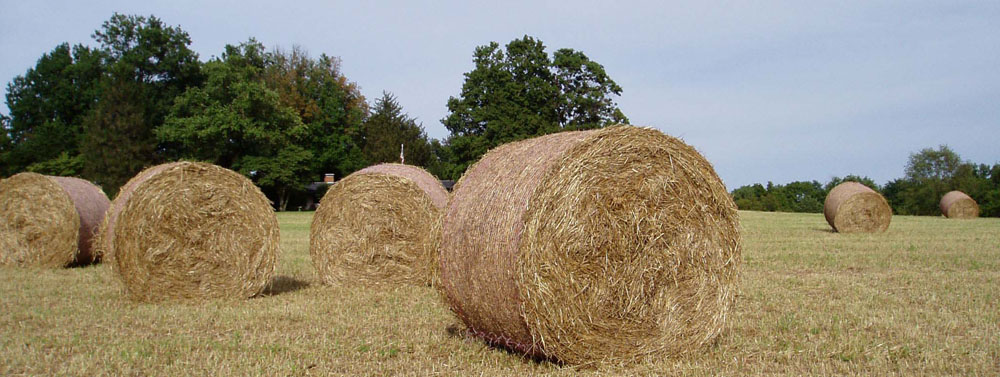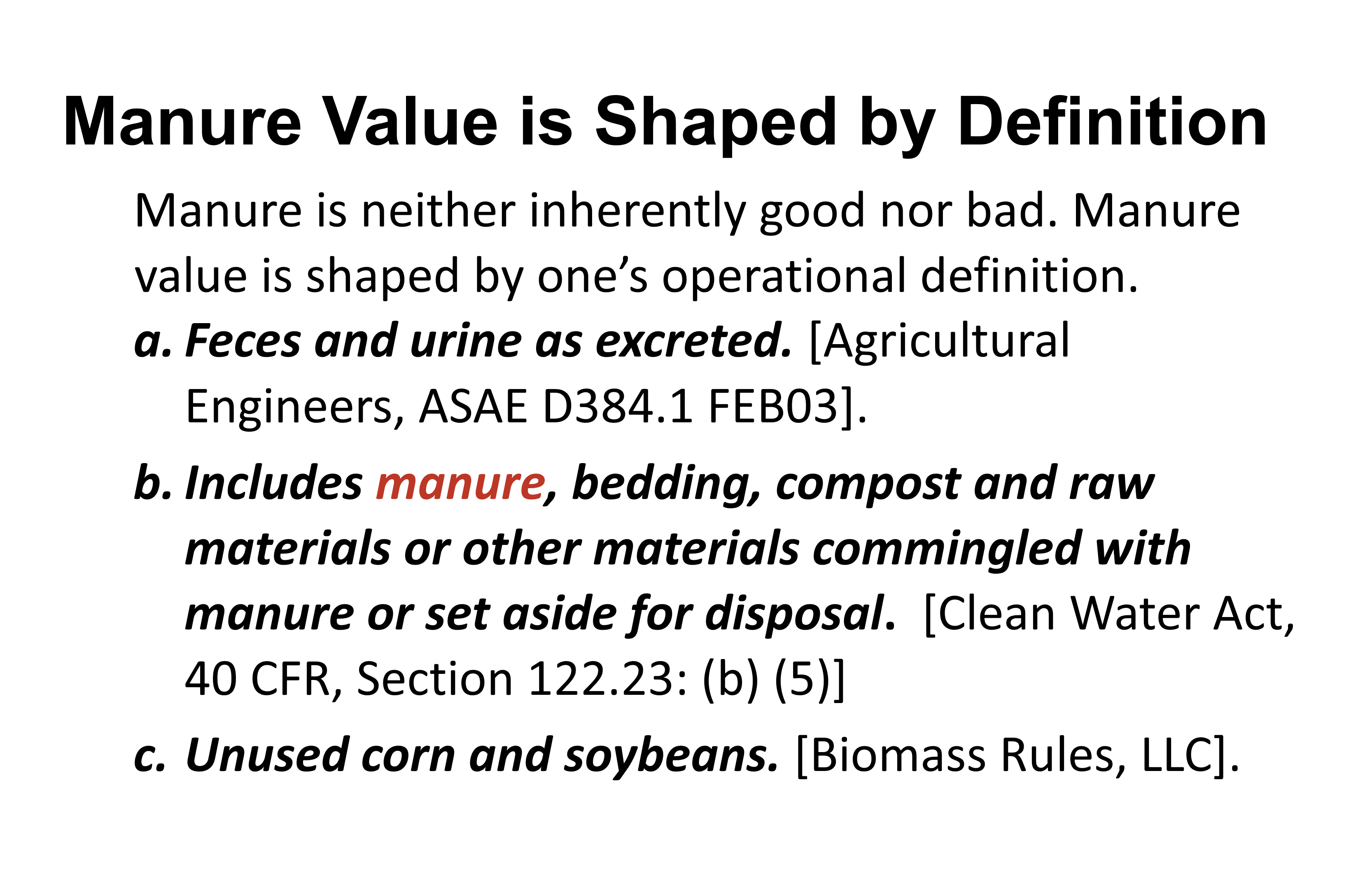Manure is NOT a 4-Letter Word
Manure doesn’t have to be a liability or associated with a 4-letter expletive. Cultural shifts begin with the seminal definition of the issue in question. If the initial definition is negative, options are bound by the limits of the definition. At a minimum, when initial definitions are based on the unbiased clarity of science, potential options are less restricted by the starting definition.
These three definitions of manure originated in a paper written while at the American Farm Bureau Federation. The politics of organic wastes and resources were limited by the definitions that were being used. Definitive Power: the Policy Impact of Definitions looked at various definitions of organic, manure, biosolids, and biomass. Back to the article, Which Facts are We Using?, there are significant differences in facts grounded in science, or crafted for policy objects, and value-based choices we all make.
These three definitions of manure cover those three kinds of facts: scientific, policy-oriented, and cultural. In each of these cases, manure is defined as,
Feces and urine as excreted. [Agricultural Engineers, ASAE D384.1 FEB03]. This is the ASAE Standards (engineering standards, practices and data) define manure as fresh feces and urine. Does not include bedding or added water. This is a definition based on science.
Includes manure, bedding, compost and raw materials or other materials commingled with manure or set aside for disposal. [Clean Water Act, 40 CFR, Section 122.23: (b) (5) (more commonly referred to as the Concentrated Animal Feeding Operation (CAFO) Rule).] Out of the Clean Water Act regulations and goes recursively, beyond logic by using ‘manure’ itself to define ‘manure.’ In addition, they include bedding, compost and other spare residual materials. Anything that has ever had manure is codified as manure…forever, without possibility of transformation into non-manure. The markets and the courts continually refine the definition of private property. This policy definition of manure confounds those boundaries by piling more and more materials into the definition of manure.
Unused corn and soybeans. [Biomass Rules, LLC]. Corn and soybeans have positive images and values until they become manure. Identifying manure as unused corn and soybeans preserves the positive images. All the other definitions of manure identify it as an endpoint or product. This definition has flow characteristics of a broader ‘system’ implying further use. This is a definition/fact based on choice.
The rest of the Definitive Power paper looks at similar differences between science and policy for organic, biosolids, and biomass. The point is less that one definition is better than the other, as much as to recognize that sometimes the definitions have very different meanings.
Lawsuits are won and lost on legal semantics. Underlying definitions confer significant power by blurring technical, cultural and legal concepts. The less biased our working definitions become, the less costly and more effectively public policies will be integrated into the economy.
And, yes, manure is not a four-letter word. It is more like unused corn and soybeans.



Comments
Manure is NOT a 4-Letter Word — No Comments
HTML tags allowed in your comment: <a href="" title=""> <abbr title=""> <acronym title=""> <b> <blockquote cite=""> <cite> <code> <del datetime=""> <em> <i> <q cite=""> <s> <strike> <strong>